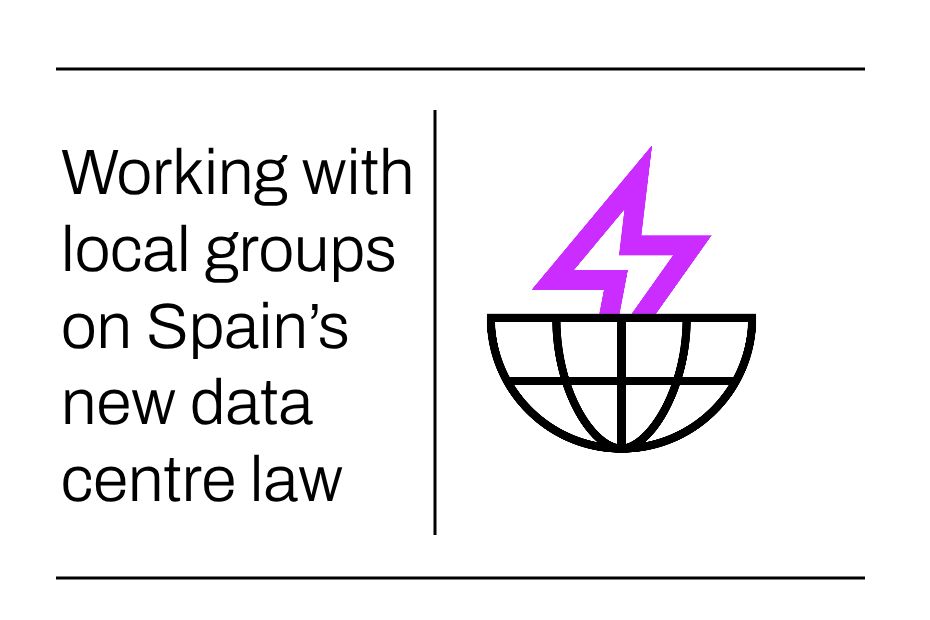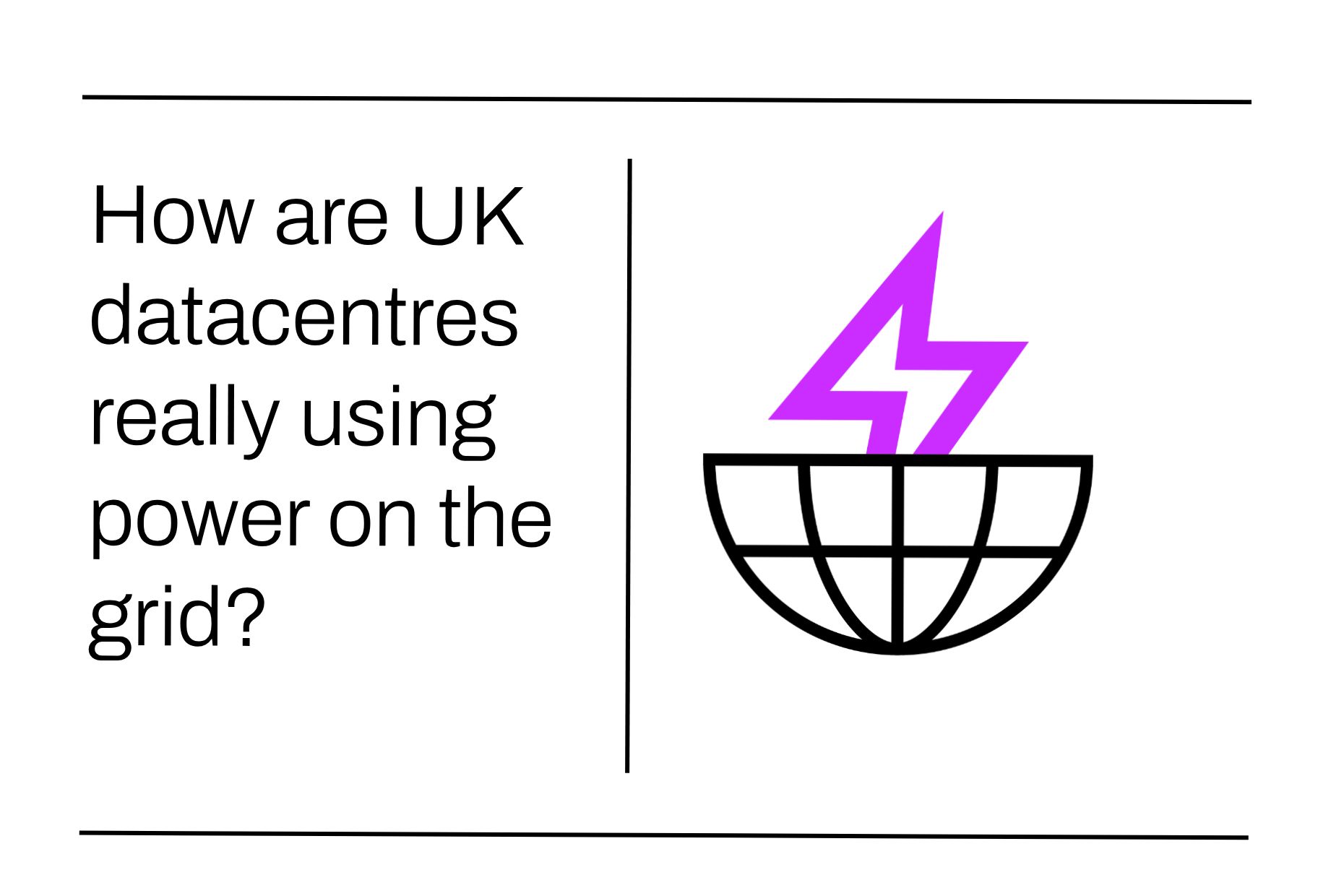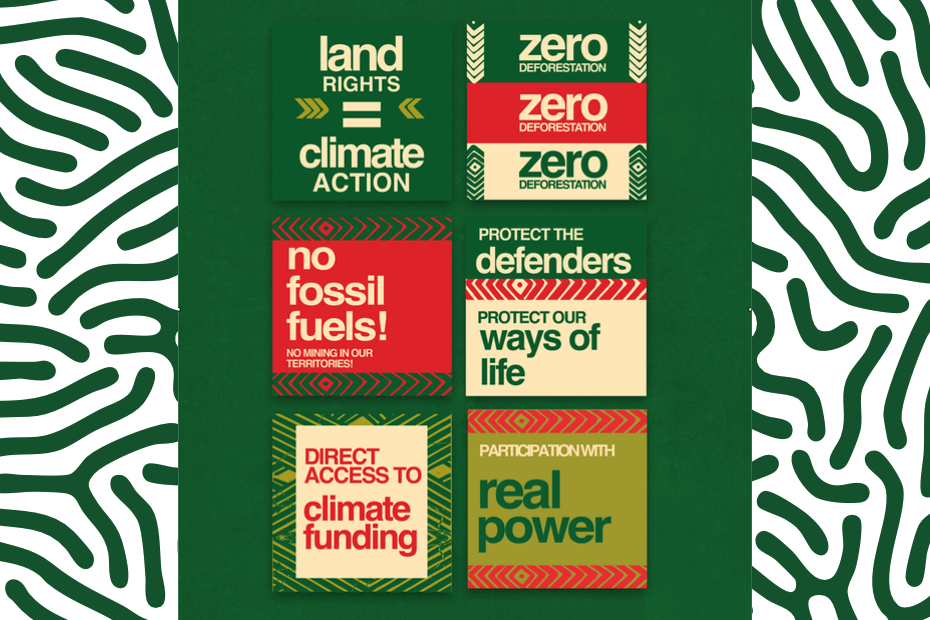Tu Nube Seca Mi Río invited Tim Cowlishaw, Green Web Foundation’s newest developer to contribute to a response to Spain’s public consultation on its new data centre efficiency law. Along with Tu Nube Seca Mi Río and many other collaborators, we produced a comprehensive model response. Here’s what happened and what we learned from the experience.
Our core mission at the Green Web Foundation is to phase out fossil fuels from digital infrastructure — fast, fairly and forever. However, we’re very aware that debates over fossil fuel usage, energy provenance and efficiency go hand in hand with other issues and struggles of ecological and social justice — and that data centres and other digital infrastructures can cause multiple intersecting problems for the communities and ecologies in which they are built and operated. For this reason, our mission mentions “fairness”: phasing out fossil fuels must be done in a way that is just and sensitive to the needs of those most impacted by digital infrastructures, and take into account the other problems that they present.
An essential way of ensuring this fairness is working alongside and supporting local activist groups, who know the impacts, conditions and concerns of their community better than most. Therefore, when Aurora Gómez Delgado from Tu Nube Seca Mi Río (“Your cloud dries my river”) asked me to take part in drafting a group response to the audiencia pública (public consultation) on the new draft Spanish data centre law (the “Ley CPD”), it was a great opportunity to put this commitment into action, drawing on the insight and knowledge of the rest of the Green Web Foundation team.
The “Ley CPD”
In brief, Spain’s Ley CPD implements the European Energy Efficiency Directive (EED), and the Delegated Regulation (EU) 2024/1364 within the Spanish legislative framework, enshrining the transparency requirements for data centre operators specified in the EED in Spanish law. (Chris has been tracking EED disclosures on the blog for quite some time, and has written a great summary of what we’ve learned from the first public report on the results).
Encouragingly, in some cases, the new Spanish law goes beyond what is mandated at a European level. The draft also includes a requirement for new data centres above a certain capacity threshold to evaluate heat-recycling possibilities as a condition of receiving planning permission, as well as requiring that the largest data centres score among the top 15% on various important environmental benchmarks.
A fossil-free internet, in context
As mentioned our core GWF mission is to phase out fossil fuels from digital infrastructures, but this comes interlinked with other related struggles. The Ley CPD consultation is a good example of this. Our collaborators who contributed to the response highlighted not just concerns over carbon emissions and energy sourcing, but the effects of data centres on local communities in terms of employment and social cohesion, the strain they place on the water supply (and potential pollution from wastewater outflow), as well as problems arising from their generation of e-waste.
The consultation therefore offered us a valuable opportunity to position our focus on fossil-fuel energy within the context of these wider eco-social controversies, and to consider how a fossil-free internet might best be brought about fairly and justly.
Leading from local knowledge…
For the most part, this process drew my attention to the way in which this sort of collaboration benefits from a both a strong, transnational network of participants, but at the same time a particular sensitivity to local conditions and concerns, something that can only come from working alongside, and deferring to, the experience and knowledge of people working and living in the places and communities in question. What became very obvious to me through the consultation is that policy work, activism, and advocacy for a just, fossil-fuel free internet will not look the same in Spain as in the UK, Germany, or the Netherlands. Heat recycling, for instance, might be a valid means of improving energy efficiency in a colder climate, but is of limited use in a Mediterranean climate with higher temperatures, where heat is not in short supply but water frequently is.
“What became very obvious to me through the consultation is that policy work, activism, and advocacy for a just, fossil-fuel free internet will not look the same in Spain as in the UK, Germany, or the Netherlands.”
Similarly, the differences in political and legislative structures lead to subtleties which require specific local nuance. Spain’s system of government, where many powers are delegated to autonomous communities (further divided into provinces and municipalities) mean that attention must be paid to at what level of government different measures should be administered. This is particularly important in the case of requirements for transparency around claims of employment generated by data centre projects, where it’s crucial to understand how many positions are created locally by a data centre project in, say, Huesca, compared to positions it might generate in Madrid or Barcelona.
On the other hand, a strong transnational network of activists, policy and campaigning organisations has many advantages — allowing us to learn lessons from similar initiatives in other countries and territories, even when they perhaps cannot be applied wholesale locally. In addition, it improves sharing and access to research, policy and technology initiatives which might help support the aims of local communities and activists. For example the SCARF metric for water stress, of particular interest in the Spanish context where droughts can be frequent, and severe, yet highly localised, as well as our own carbon.txt initiative, which aims to improve discoverability and transparency of sustainability data and green claims.
The result
The result of this process was a comprehensive model response in spanish, which included input from Tu Nube Seca Mi Río, Ecologistas en Acción, Arte es Ética, Ana Valdivia, Marina Otero Verzier and ourselves, as well as many other activists, experts, and members of communities directly affected by the expansion of data centre construction. It’s an ambitious and broad set of proposals, but one which is well-referenced and evidence-based, as well as being specifically tailored to local needs, thanks to the broad and committed group of participants who took part in its drafting.
Further information on the group response to the Ley CPD is available at Tu Nube Seca Mi Río’s website, along with a link to the submission. If you would like to know more about how Green Web Foundation can support digital sustainability initiatives in your area, please get in touch.



